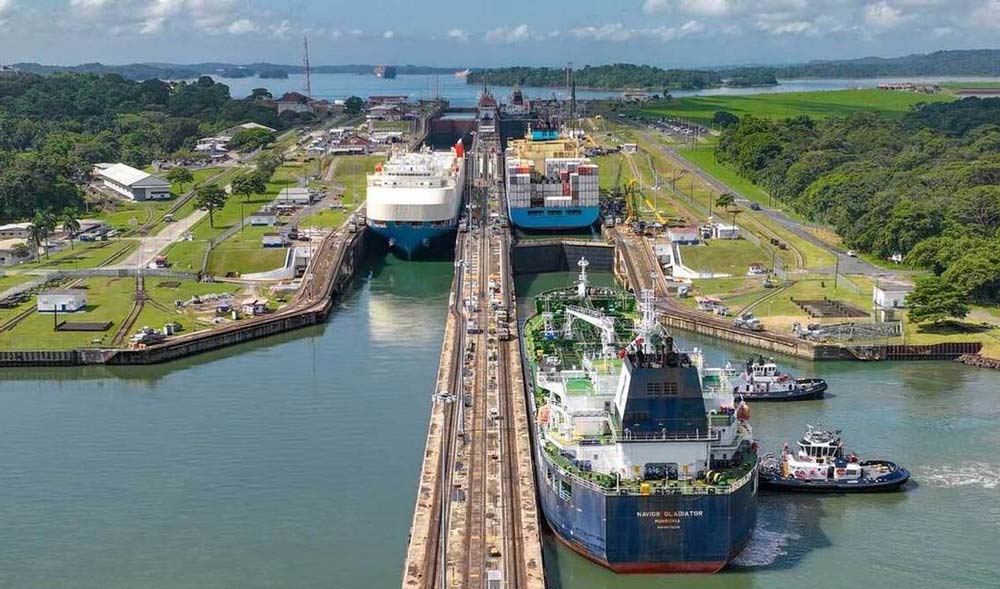In a surprising and controversial statement on Saturday, President-elect Donald Trump accused Panama of imposing “excessive rates” for the use of the Panama Canal. He further suggested that if Panama fails to manage the canal in what he deems an acceptable manner, the United States may demand control of the strategic waterway be handed back to the U.S.
A Historic Shift in Diplomacy
In an evening post on his Truth Social platform, Trump not only criticized Panama’s management of the canal but also expressed concerns about potential Chinese influence in the operation of the global shipping passage. He stated emphatically that the canal should not fall into the “wrong hands.”
The remarks mark an extraordinary moment in U.S. diplomacy, as it is rare for a U.S. leader to openly suggest pushing a sovereign nation to relinquish control of its territory. Trump’s statement underscores a potential shift in U.S. foreign policy under his leadership, with more aggressive rhetoric and bold demands becoming a hallmark of his administration’s interactions with international allies and partners.
Background on the Panama Canal
The Panama Canal, a crucial conduit for global maritime trade, was largely built by the United States in the early 20th century. For decades, the U.S. administered the canal and surrounding territory, playing a key role in its operations. However, control of the canal was fully handed over to Panama in 1999, following the 1977 Torrijos-Carter Treaties, which established a gradual transfer of authority from the U.S. to Panama.
Despite this agreement, Trump’s remarks suggest he views the U.S.’s role in building and operating the canal as grounds for potential reassertion of American control. He described the handover of the canal as a “magnanimous gesture” on the part of the U.S., one that he believes Panama is not upholding in good faith.
Trump’s Statement
In his Truth Social post, Trump wrote:
“The fees being charged by Panama are ridiculous, especially knowing the extraordinary generosity that has been bestowed to Panama by the U.S. It was not given for the benefit of others, but merely as a token of cooperation with us and Panama. If the principles, both moral and legal, of this magnanimous gesture of giving are not followed, then we will demand that the Panama Canal be returned to us, in full, and without question.”
This statement not only criticizes Panama’s fee structure but also implies that the U.S. has a moral and legal claim to the canal if Panama’s management does not align with U.S. expectations.
Concerns Over Chinese Influence
Trump also alluded to concerns about Chinese influence on the canal, though he did not provide specific evidence or examples of such involvement. His remarks reflect broader anxieties in Washington about China’s global economic and infrastructure initiatives, such as the Belt and Road Initiative, which has seen China invest heavily in ports and trade routes worldwide.
Potential Repercussions
Trump’s comments are likely to provoke strong reactions both domestically and internationally. Critics may argue that such rhetoric undermines U.S. relations with Panama, a key ally in the region, and sets a troubling precedent for U.S. foreign policy. Others may see it as a bold move to protect American interests and counter perceived threats from rival powers like China.
The Panamanian embassy in Washington has not yet responded to Trump’s remarks, and it remains to be seen how Panama will address the allegations of mismanagement and excessive fees.
A New Era of U.S.-Latin American Relations?
Trump’s statements highlight the potential for significant changes in U.S.-Latin American relations under his leadership. His willingness to challenge established agreements and make bold demands indicates a departure from the more traditional diplomatic approaches of recent administrations.
As Trump prepares to assume office, the world will watch closely to see whether these remarks translate into concrete policy actions and how Panama—and the broader international community—responds to this unexpected challenge to its sovereignty.











